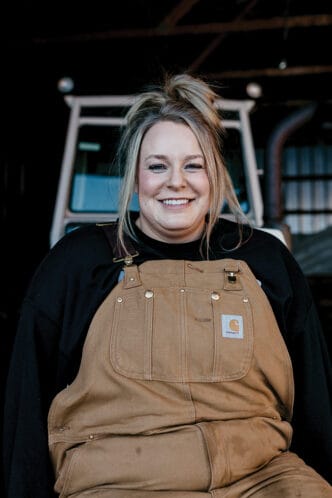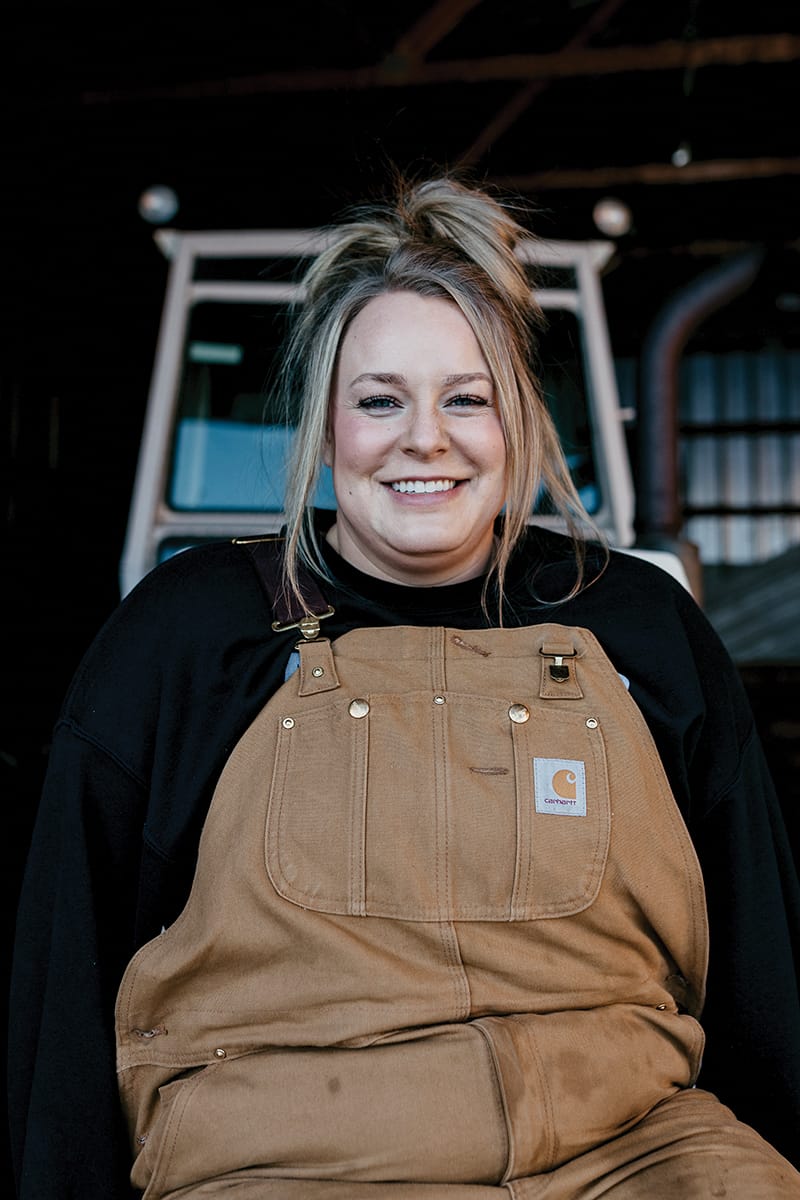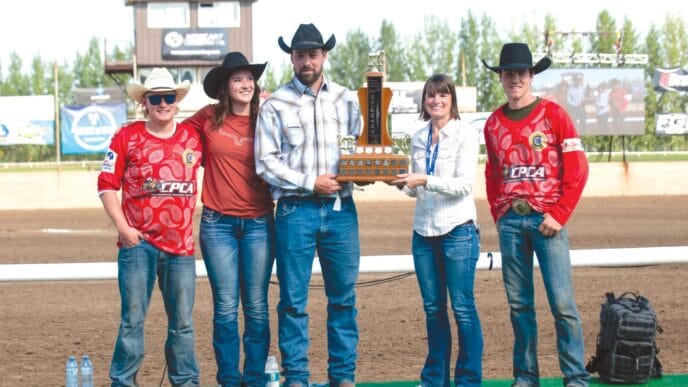Erica Leniczek. Supplied Photo
Although once a rather taboo topic of conversation, mental health on the farm is becoming more talked about today thanks to advocates like Erica Leniczek.
Based in Marwayne, Leniczek has a bachelor of science in neuroscience psychology in kinesiology, a bachelor of education in science education and community health and is currently working towards her masters of arts in counselling degree.
On top of furthering her education, Leniczek runs “The Brand Erica” while also hosting The Rural Mindset podcast.
Through The Rural Mindset, Leniczek is able to bring awareness to mental health in agriculture with the primary goal of giving quick tips and tools to farmers, ranchers, or anyone in the agriculture sector who’s listening.
Living on her partner’s five-generation commercial cattle operation, these tips and tools come naturally as they can come in handy regularly.
“When you’re in the tractor and you’re finding yourself having automatic negative thoughts, worrying about yields or the cattle industry, or one of the other many aspects of the farm, different techniques you can use to distract yourself (can be helpful),” she said.
“I also talk about different ways to prepare yourself for busy seasons, whether that’s harvest or calving season, and those are different breathing techniques like ‘box’ breathing.”
Leniczek also explained counting one’s thoughts can be helpful on those long days in the tractor.
“Distractions like counting thoughts or counting backwards from 100 by 7’s … I’m also a really big advocate for physical activity as a distraction, or just a general health tool as well … there’s lots of evidence behind physical activity and positive mental health.”
Another big one Leniczek talked about was the importance of a good night’s sleep.
“I really advocate for farmers asking for getting help, as well as getting sleep,” she said. “Those are two really big tools they don’t realize they actually have to use all of the time. Journaling is also a great tool.”
For those producers stressing as they prepare for harvest, Leniczek said it’s important to keep your cool.
“Crops around Lloydminster, for the most part, look pretty good this year, but if you’re having a rough year or maybe you were affected by a drought, just remember not to be too judgemental of yourself,” she said.
“It’s important to take some of that pressure off and not go down the rabbit hole of rumination of negative thoughts.”
Leniczek describes harvest as a time when farmers experience a lot of what she calls “fishbowl” times, when looking after one’s mental health is very important.
“You’re in the glass, you’re behind the wheel and you’re spending a lot of time by yourself, and it can get quite boring,” she said.
“I recommend doing things like getting out of the combine every hour and doing a couple laps around the combine– not only is it good to get out and check your equipment, but it’s good to get out and move your body.”
Leniczek is also a major advocate for sleep, something many of us take for granted on and off the farm.
“I know it’s hard as people work crazy long hours, but when you do sleep, it’s also important to get quality sleep,” she said.
Ways to help ensure quality sleep include decreasing screen time before bed, laying your clothes out before bed to make the morning easier, and precooking meals for the day.
“A lot of people do field meals and that’s a wonderful thing because it brings the community aspect into harvest,” she said.
“It’s also important to make sure you get good, nutritious meals, to keep your brain working optimally working such long hours.”
For anyone experiencing negative thoughts during those long fishbowl times, Leniczek has a few tips for combating negativity.
“When you do notice those thoughts coming on, take three deep breaths and try to think about something else, put on the radio, or call a friend you know is in the combine and just as bored as you. Connecting with someone you care about is another really good tool.”
For Leniczek, the fact farmers and ranchers are more open to talking about mental health is a great step.
“It’s becoming a conversation that’s becoming more open. I wouldn’t necessarily say it was a taboo conversation, but you just ‘tough it out,’ you know? Rub some dirt in it and kind of just get over it. Now, more awareness is being raised and there’s a big focus on it.”
















